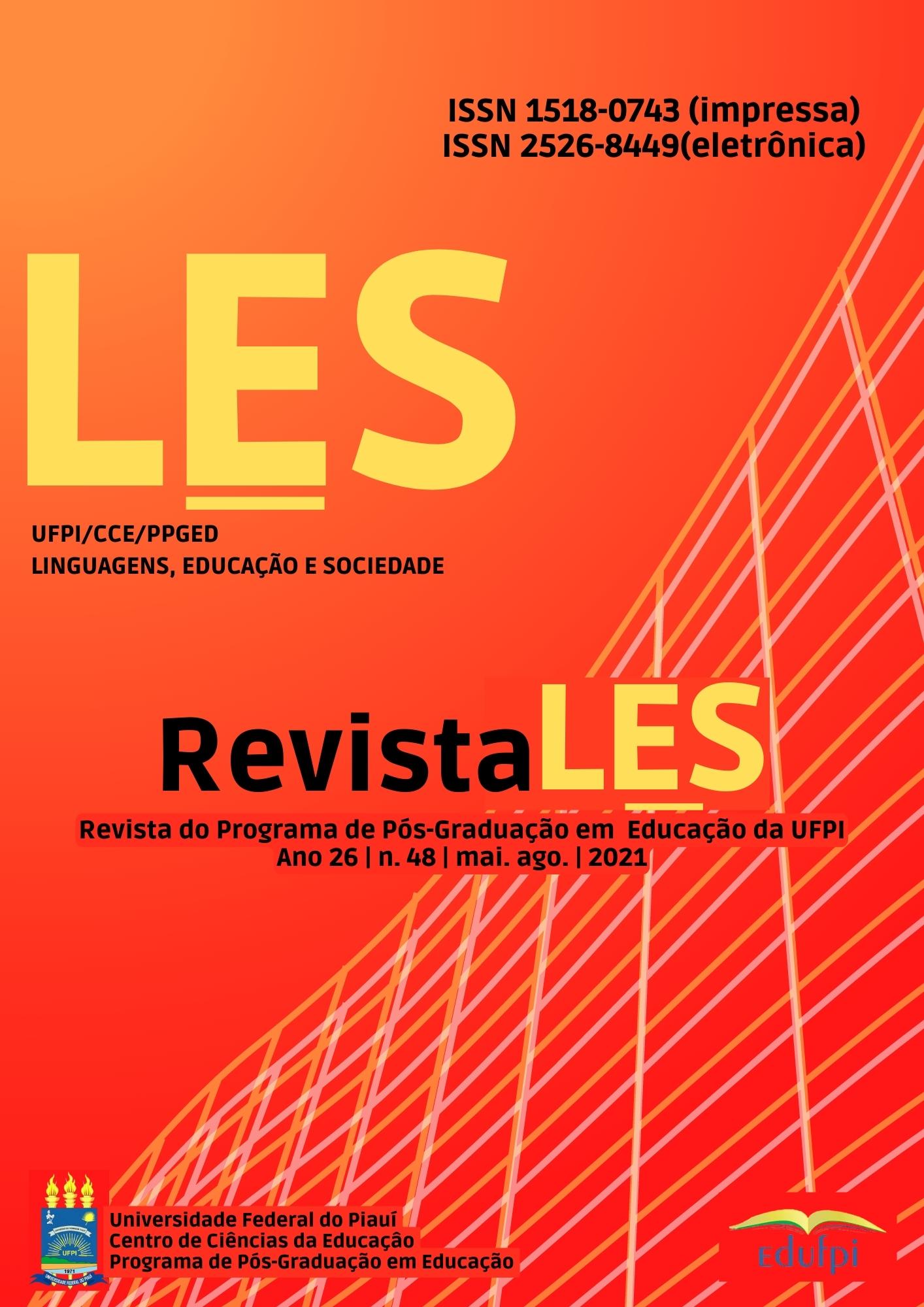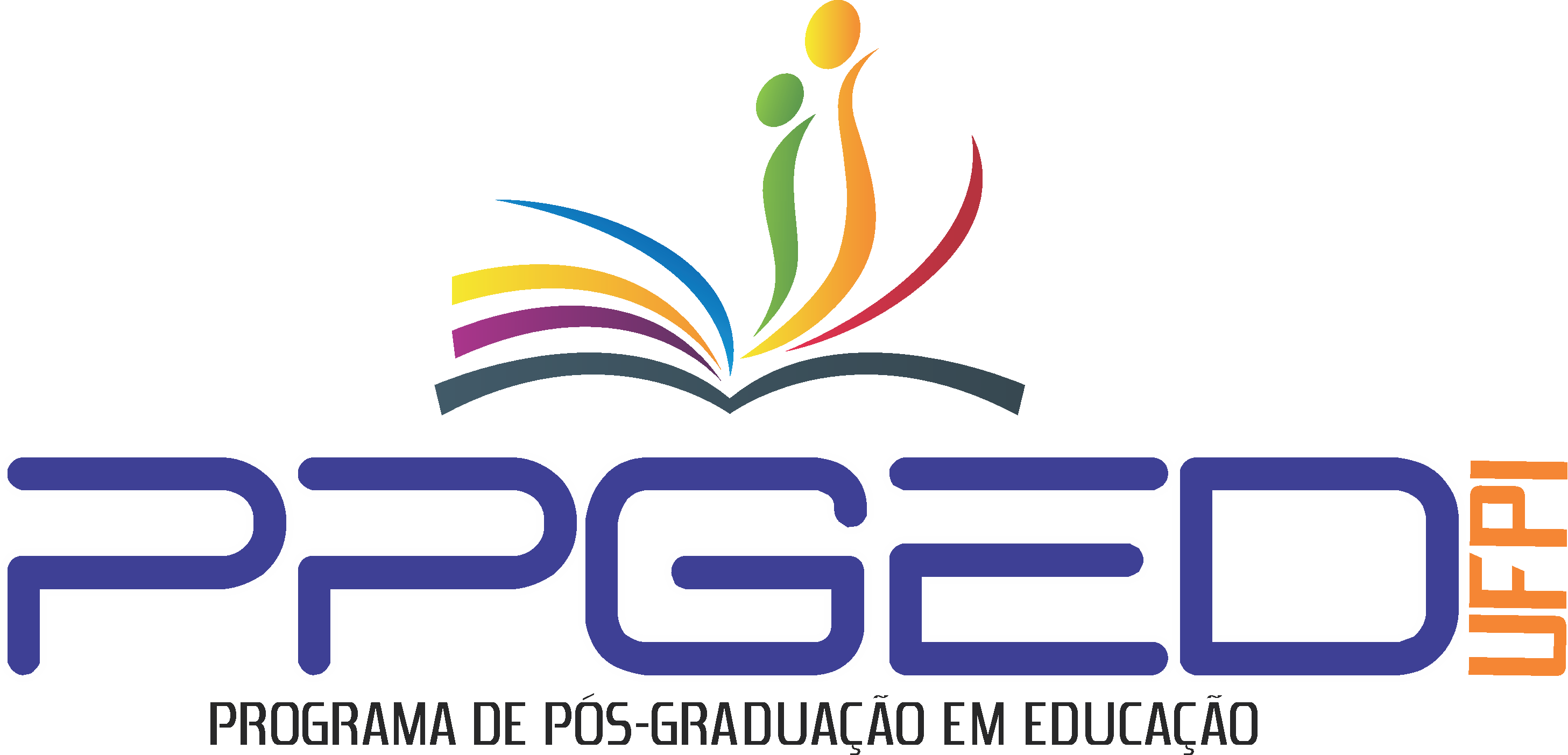PRÁTICAS DOCENTES E JUVENTUDES: UMA COMPREENSÃO NARRATIVA SOBRE A FORMAÇÃO DO JOVEM TRABALHADOR
DOI:
https://doi.org/10.26694/rles.v25i48.2503Palavras-chave:
Formação docente. Juventudes. Pesquisa narrativaResumo
Este artigo apresenta os resultados de uma pesquisa narrativa, que abordou as práticas docentes voltadas ao atendimento das juventudes em um curso de formação profissional. A juventude é uma experiência psicossocial que perpassa os sujeitos jovens, trazendo a emergência de inúmeras vivências. No cenário educacional da atualidade, torna-se importante compreender como a escola e a educação compreendem as juventudes e como consideram seus conhecimentos e vivências na construção dos currículos e no desenvolvimento das estratégias de aprendizagem. Partindo da experiência docente junto aos jovens trabalhadores, esta pesquisa teve como objetivo descrever como os saberes e vivências trazidos pelos jovens, cotidianamente, ao curso de formação profissional alteram a prática docente, possibilitando novos aprendizados para professores e alunos. Este estudo ocorreu em uma unidade escolar, na cidade de São Paulo, que oferece o curso de formação de jovens aprendizes. Os sujeitos da pesquisa foram os professores que atuam no curso de formação, assim como os próprios jovens. Como instrumento de pesquisa, optou-se por cartas, as quais foram escritas por professores e alunos, relatando seu ponto de vista a respeito do processo educacional desenvolvido. Após o tratamento analítico do material coletado, foram criados dois eixos de discussão: uma sala e muitas juventudes; tribos fora do gueto. Quanto aos resultados desta investigação, as reflexões sobre estes eixos levaram à proposição de uma Pedagogia das Juventudes, a qual se constitui em uma proposta teórico-metodológica, embasada na ecologia de saberes, como uma prática educacional que atenda aos diferentes jovens nos mais diferentes contextos.
Downloads
Referências
ABRAMO, Helena. Considerações sobre a tematização social da juventude no Brasil. Revista Brasileira de Educação, n. 5-6, 1997.
ABRAMOVAY, Miriam Juventudes na escola, sentidos e buscas: Por que frequentam? Brasília-DF: Flacso - Brasil, OEI, MEC, 2015.
ARANTES, Valéria Amorim; DANZA, Hanna Cebel; PINHEIRO, Viviane Potenza
Guimarães; PÁTARO, Cristiane Satiê de Oliveira. Projetos de vida, juventude e educação moral. International Studies on Law and Education, São Paulo, Mandruvá, n. 23, p. 77-94, 2016. Disponível em: http://hottopos.com/isle23/77-94Valeria&.pdf. Acesso em 05 de outubro de 2020.
ARENDT, Hanna. Entre o passado e o futuro. São Paulo: Perspectiva, 2009.
BRASIL. Lei Nº 10.097, de 19 de dezembro de 2000. Altera dispositivos da Consolidação das Leis do Trabalho – CLT, aprovada pelo Decreto-Lei no 5.452, de 1 de maio de 1943.
Brasília, DF, 2000. Disponível em: http://www.planalto.gov.br/ccivil_03/LEIS/L10097.htm. Acesso em 05 de abril de 2020.
BRASIL. Portaria n° 723, de 23 de abril de 2012. Criar o Cadastro Nacional de Aprendizagem Profissional – CNAP. Ministério do Trabalho e Emprego. Brasília, DF, 2012. Disponível em: http://www.normaslegais.com.br/legislacao/portaria-mte-723-2012.htm. Acesso em 05 de abril de 2020.
CLANDININ, Jean; CONNELLY, Michael. Pesquisa narrativa: experiência e história em pesquisa qualitativa. Tradução: Grupo de Pesquisa Narrativa e Educação de Professores ILEEI/UFU. Uberlândia: EDUFU, 2011. 250 p.
CUNHA, Maria Isabel. Conta-me agora! as narrativas como alternativas pedagógicas na pesquisa e no ensino. Revista da Faculdade de Educação, vol. 23 n. 1-2, São Paulo, janeirodezembro. 1997
DAY, Christopher. Desenvolvimento profissional de professores: os desafios da aprendizagem permanente. Porto: Porto Editora, 2001.
DAYRELL, Juarez. A escola “faz” as juventudes? Reflexões em torno da socialização juvenil. Educação e Sociedade, Campinas, v.28 n.100, p. 1105-1128, out. 2007.
DAYRELL, Juarez. Por uma pedagogia das juventudes: experiências educativas do Observatório da Juventude. 1 ed. Belo Horizonte: Mazza Edições, 2016.
GARCIA, Carlos Marcelo. Formação de professores para uma mudança educativa. Porto: Porto Editora, 1999.
IMBERNÓN, Francisco. Formação docente e profissional: formar-se para a mudança e a incerteza. São Paulo: Cortez, 2004.
NÓVOA, Antônio (Org.). Os professores e sua formação. Lisboa: Dom Quixote, 1997.
OLIVEIRA, Edina Castro de. Prefácio.In: FREIRE, Paulo, Pedagogia da autonomia. São Paulo: Paz e terra, 25 ed. 2002.
SHULMAN, Lee S. Conhecimento e ensino: fundamentos para a nova reforma. Cadernos Cenpec, São Paulo, v. 4, n. 2, p. 196-229, dezembro, 2014.
SOUSA, Maria Goreti da Silva; CABRAL, Carmen Lúcia de Oliveira. A narrativa como opção metodológica de pesquisa e formação de professores. Horizontes, v. 33, n. 2, p. 149158, julho/dezembro, 2015.
SOUZA, Maria Thereza Costa Coelho de. O desenvolvimento afetivo segundo Piaget. In: Afetividade na escola: alternativas teóricas e práticas. ARANTES, Valéria Amorim (organizadora). São Paulo: Summus, 2003. 237 p.
TARDIF, Maurice. Saberes docentes e formação profissional. 11 ed. Petrópolis-RJ: Vozes, 2010.
TELLES, João Antônio. A trajetória Narrativa: histórias sobre a formação do professor de línguas e sua prática pedagógica. Revista Trabalho em Linguística Aplicada, v. 34, p. 7992. 1999.













